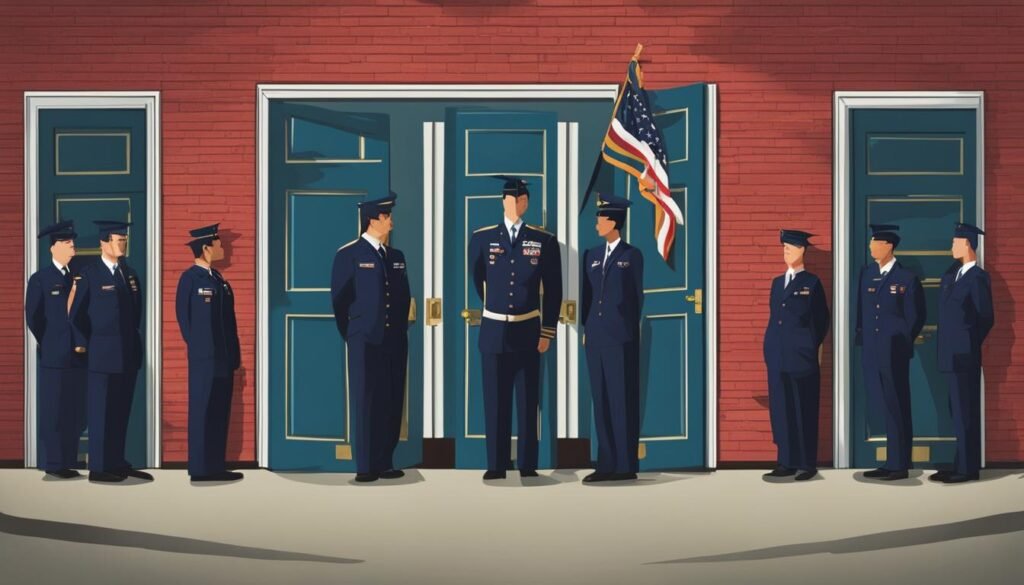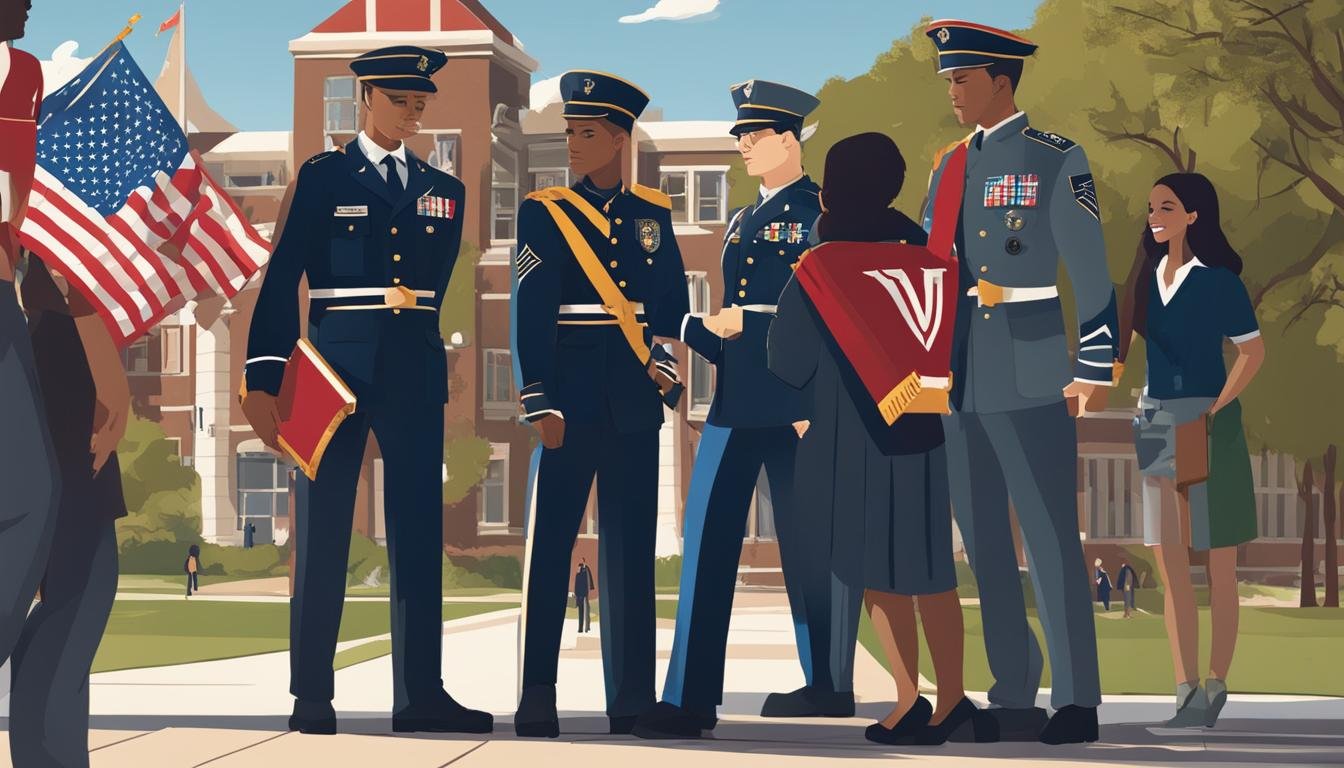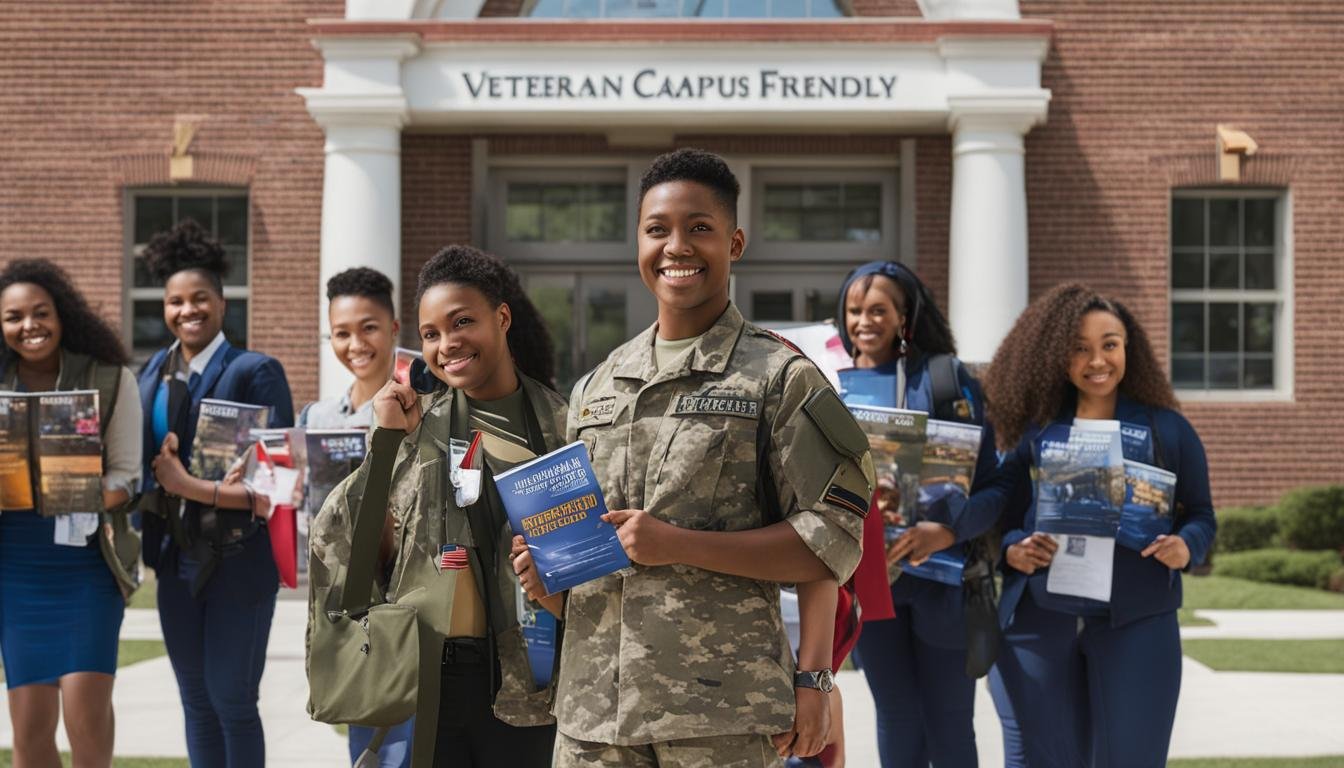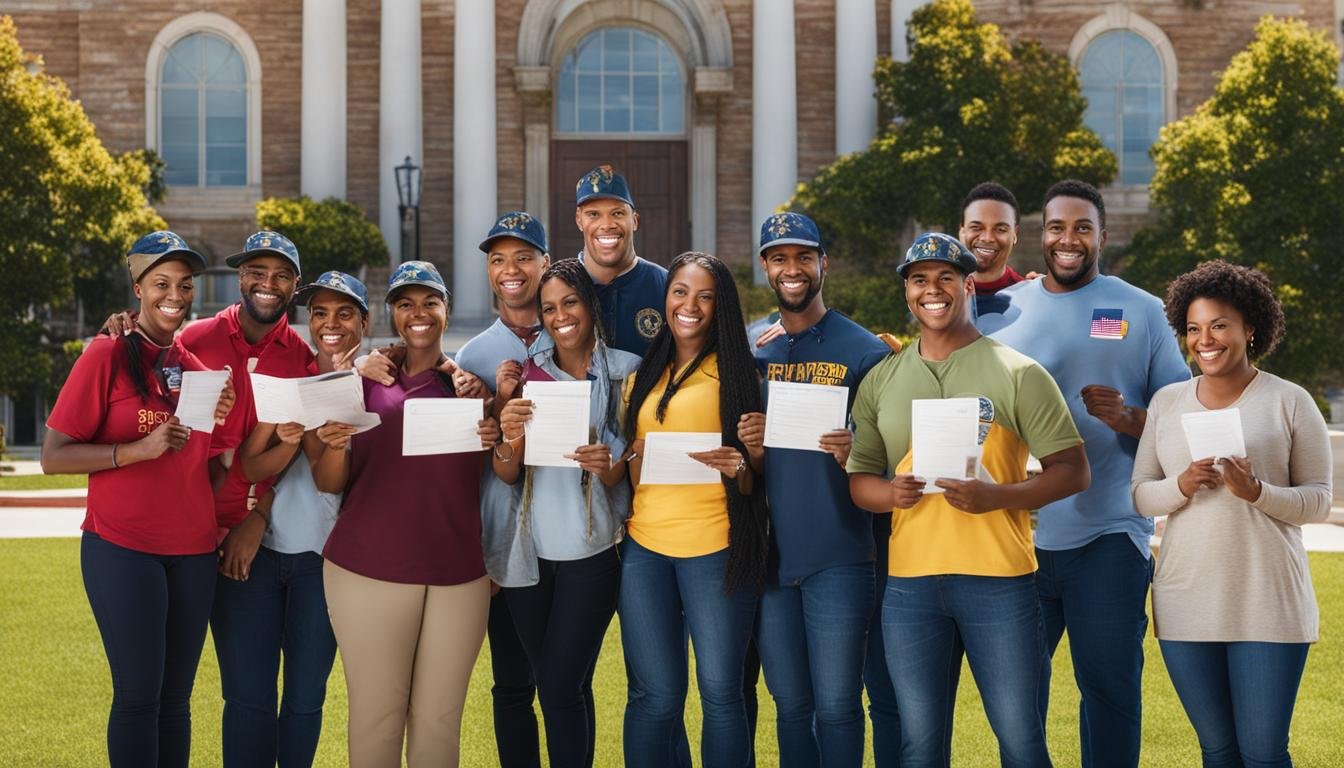Are you a veteran looking to pursue higher education? Discover how your veteran status can positively influence your college admissions journey. From dedicated recruiting teams to specialized support programs, colleges and universities are recognizing the value veterans bring to campus.
Key Takeaways:
- Veteran enrollment in selective colleges and universities is increasing.
- Dedicated recruiting teams and national reputation contribute to the rise in veteran enrollment.
- Organizations like the Warrior Scholar Program and Service to School support veterans interested in higher education.
- Veterans may face unique challenges and advantages when applying to colleges.
- Colleges like Harvard University have specific application requirements and support systems for veterans.
- Veterans with at least a high school education are more likely to be enrolled in college compared to their civilian peers.
- Comprehensive support systems and resources are crucial for veterans navigating the college application process.
Opportunities for Veterans in College Admissions

When it comes to college admissions, veterans may encounter both unique challenges and advantages. Many colleges and universities have recognized the valuable experiences and skills that veterans bring to the table, leading to the development of specific application requirements and support systems tailored to their needs.
One example is Harvard University, which actively supports veterans through its VetLink program. This program provides dedicated advising and support throughout the college application process, helping veterans navigate the intricacies of admissions. Furthermore, Harvard University participates in the Yellow Ribbon Program, offering financial aid options specifically for veterans.
Research has shown that veterans with a high school education or less often outearn their civilian peers. On the other hand, veterans with at least some college education may lose the earnings advantage. However, what sets veterans apart is their higher likelihood of enrolling in college compared to their civilian counterparts. This demonstrates the strong drive and commitment that veterans bring to pursuing higher education.
“Veterans often possess a unique set of skills and experiences that make them well-suited for college success. Colleges and universities recognize this and are taking steps to create a welcoming environment for veterans.”
The benefits of veteran status in college admissions extend beyond individual success. Institutions of higher education have a responsibility to provide comprehensive support systems and resources to ensure the smooth transition of veterans into college life. Organizations like Service to School and the Warrior Scholar Program have played a vital role in bridging this gap, assisting veterans in their journey towards higher education.
| Advantages of Veteran Status in College Admissions |
|---|
| Recognition of valuable experiences and skills |
| Dedicated advising and support programs |
| Access to financial aid options |
| Higher likelihood of enrolling in college |
By investing in dedicated recruiting teams, building national reputations, and providing comprehensive support, colleges and universities can create a welcoming and inclusive environment for veterans. This not only benefits the veterans themselves but also enriches the overall campus community with diverse perspectives and experiences.
As the number of veterans seeking higher education continues to rise, it is crucial for colleges and universities to recognize and address the unique needs of this population. By doing so, they can ensure that veterans have the necessary tools and resources to succeed in their college admissions journey and beyond.
What Are the Specific Benefits and Considerations for Veterans in College Admissions?
When it comes to college admissions criteria for veterans, there are unique benefits and considerations. Veterans bring diverse experiences and valuable perspectives to campus. Many colleges offer specialized support services for veterans, such as financial aid and academic accommodations. Admissions criteria often include recognizing military training and experience.
Implications and Conclusions
The impact of veteran status on college admissions goes beyond just enrollment numbers. It highlights the need for comprehensive support systems and resources for veterans navigating the college application process. Organizations like Service to School and the Warrior Scholar Program have been instrumental in assisting veterans in their journey towards higher education.
Colleges and universities must continue to prioritize veteran support initiatives to ensure that these individuals have the necessary tools and resources to succeed in their college admissions journey. By investing in dedicated recruiting teams, building national reputations, and providing comprehensive support, colleges can create a welcoming and inclusive environment for veterans.
Having veteran resources in place is crucial for addressing the unique challenges veterans face when applying to college. Programs like the VetLink program at Harvard College and the Yellow Ribbon Program offer specialized advising, financial aid options, and support throughout the application process. These initiatives not only attract more veterans to enroll in college but also contribute to their academic success and overall well-being.
In conclusion, the growing enrollment of veterans in selective colleges and universities emphasizes the importance of recognizing and supporting their unique needs. The collaboration between veterans organizations and academic institutions plays a pivotal role in ensuring that veterans have equal access to education and resources. It is essential for colleges and universities to continue investing in veteran support initiatives to create an inclusive and supportive educational environment.



